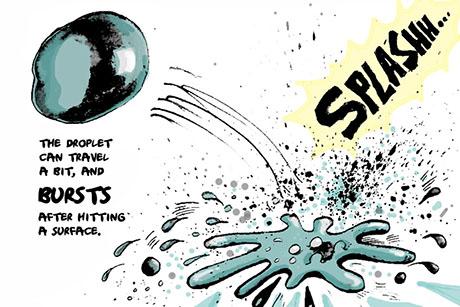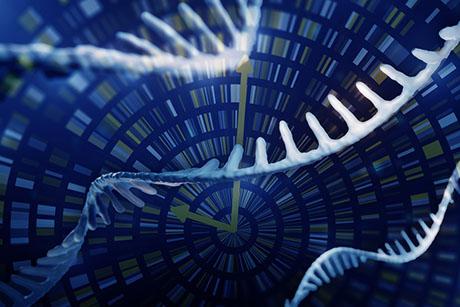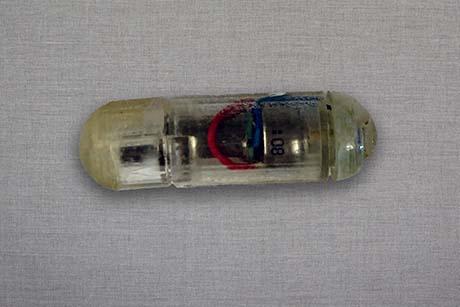Icing ALS: MIT Family Reshapes Research Models
Professor John Heywood SM ’62, PhD ’65 and his two sons, Jamie ‘91 and Ben ’93, have used MIT thinking — in particular, systems dynamics and manufacturing management — to transform research models after losing a family member to ALS.
Ice bucket challenges are all the rage, raising awareness about ALS and the efforts to treat and cure the devastating neurodegenerative disease. On campus, President L. Rafael Reif and the mechanical engineering faculty recently took the chilly dunks — with a decidedly MIT turn. The challenges were dedicated to Karolina Fraczkowska ’01 and to the son of Professor of Mechanical Engineering John Heywood SM ’62, PhD ’65 — Stephen Heywood, who died of ALS in 2006, and whose family has created an innovative model for ALS research.
The Heywood family banded together when Stephen got the grim diagnosis in 1999. Within months, Jamie Heywood '91 had left his job in California, moved back east, and the family incorporated ALS Therapy Development Institute (ALS TDI), the world’s first nonprofit biotech, in John Heywood’s basement with the goal of delivering therapeutics to patients quickly.
MIT was pivotal in starting ALS TDI and its approach, Jamie Heywood says. The first major investor in was Alex d’Arbeloff, then chair of the MIT Corporation, who regularly “schooled” Jamie on strategy and provided startup funds and connections to other donors. Jamie’s mechanical engineering training at MIT was also central to the plan — particularly the lessons he learned on manufacturing management and quality and the systems dynamics course 2.03 (Dynamics I), in which he explored how to model common physical relationships in complex systems.
“What was obvious early on is that molecular biology operated by the same rules and you could apply systems dynamics modeling to machines and human bodies. Ironically, it’s the only really bad grade I got at MIT — I didn’t do the homework — yet dynamics is the lens through which I view research today,” he says.
ALS TDI has used a systems engineering and manufacturing sensibility to build a research organization that emphasizes quality, reproducible results, and industrial-scale experiments targeting ALS. “We did the first large-scale longitudinal study of a mouse model, looking at RNA to see how the disease progressed in each organ over the lifespan," Jamie Heywood says. "Today ALS TDI has the world’s largest integrated molecular longitudinal data set of neurodegenerative diseases in mice.”
Besides raising animal study standards, the company identified specific inflammation changes in ALS that enabled therapies now in trial and discovered that early physical changes occurred in the neuromuscular junction, rather than in the central nervous system, challenging long-held assumptions about the disease. Today, TDI is the largest dedicated ALS research lab in the world, a global leader in preclinical drug screening for ALS, and engaged in some 15 active partnerships with biotech/pharma companies.
As ALS TDI took off, the Heywood team quickly understood that patients had much to learn from one another. Jamie, his brother Ben Heywood ‘93, and Jeff Cole ‘93, SM ‘95, founded PatientsLikeMe to enable patients to share disease-specific experiences, treatments, and outcomes. Today PatientsLikeMe has grown into an online research network of more than 250,000 people representing 2,000 diseases — including fibromyalgia, multiple sclerosis, and ALS — who share information about symptoms, treatments, and coping mechanisms.
By drawing on patients’ actual experiences, data from PatientsLikeMe was recently used to refute a prior clinical trial that showed lithium could help people with ALS. “Today our ALS-modeling capability is so powerful that we can, in some cases, predict the results of clinical trials while they’re going on,” Jamie Heywood says.
Yet the cure to ALS is still not at hand.
In “#IceBucketChallenge, Investing Well,” an opinion piece published in The Scientist on Sept. 10, Jamie Heywood points to the importance of proactive research that relies on scaled systems discovery and patient involvement. While PatientsLikeMe and ALS TDI focus on patient engagement, that’s not true of some other organizations. The Heywoods hope the ice bucket donations will target high-impact work to fight this intransigent disease.
“The Ice Bucket Challenge raised knowledge, awareness, money, and hope,” he wrote, “but there is still a long road for ALS patients who are still living with a deadly disease for which there is still essentially no treatment.”



